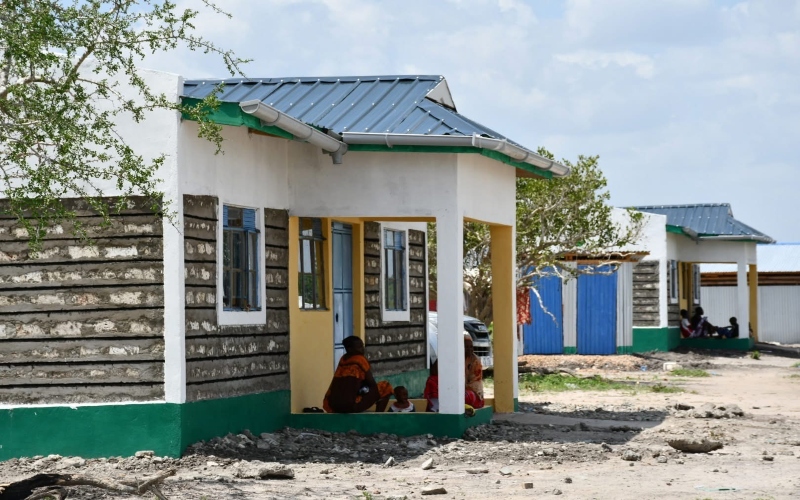What we know about the deadly pager blasts in Lebanon

Some of the detonations took place after the pagers rang, causing the fighters to put their hands on them or bring them up to their faces to check the screens.
At least nine people were killed and nearly 3,000 wounded when pagers used by Hezbollah members - including fighters and medics - detonated simultaneously across Lebanon.
Here's what we know so far about the pager blasts.
More To Read
- US prosecutors reveal how Lebanese man was part of a plot to trade cocaine for Syrian weapons in Nairobi
- Funding shortfall halts evacuations as Kenyans remains stranded in DRC, Lebanon
- Lebanon, Myanmar top list of migrant abuse cases as Kenya documents 234 victims
- Trump calls for removal of 1.5 million people displaced by Gaza conflict
- Iron-fisted Assad never quelled the Syrian rebels who came back to topple him
- With world distracted by conflicts elsewhere, Syrian civil war flares up again
When and where did the blasts take place?
The detonations started around 3:30 p.m. (1230 GMT) in the southern suburbs of Beirut known as Dahiyeh and the eastern Bekaa valley - strongholds of the anti-Israel militant group Hezbollah.
They lasted around an hour, with Reuters witnesses and residents of Dahiyeh saying they could still hear explosions at 4:30 p.m. (1730 GMT).
According to security sources and footage reviewed by Reuters, some of the detonations took place after the pagers rang, causing the fighters to put their hands on them or bring them up to their faces to check the screens.
How big were the explosions?
The blasts were relatively contained, according to footage reviewed by Reuters. In two separate clips from the closed-circuit video of supermarkets, the blasts appeared only to wound the person wearing the pager or closest to it.
Video from hospitals and shared on social media appeared to show individuals with injuries to their faces, missing fingers and gaping wounds at the hip where the pager was likely worn.
The blasts did not appear to cause major damage to buildings or start any fires.
What type of pager exploded?
Images of destroyed pagers analysed by Reuters showed a format and stickers on the back that were consistent with pagers made by Gold Apollo, a Taiwan-based pager manufacturer.
The firm did not immediately reply to questions from Reuters. Hezbollah did not reply to questions from Reuters on the make of the pagers.
Hezbollah fighters began using pagers in the belief they would be able to evade Israeli tracking of their locations, two sources familiar with the group's operations told Reuters this year.
Three security sources told Reuters that the pagers that detonated were the latest model brought in by Hezbollah in recent months.
What caused the pagers to explode?
Iran-backed Hezbollah said it was carrying out a "security and scientific investigation" into the causes of the blasts and said Israel would receive "its fair punishment."
Diplomatic and security sources speculated that the explosions could have been caused by the devices' batteries detonating, possibly through overheating.
But others said that Israel might have infiltrated the supply chain for Hezbollah's pagers. The New York Times reported that Israel hid explosive material within a new batch of the pagers before they were imported to Lebanon, citing American and other officials briefed on the operation.
Several experts who spoke with Reuters said they doubted the battery alone would have been enough to cause the blasts.
Paul Christensen, an expert in lithium-ion battery safety at Newcastle University, said the damage seemed inconsistent with past cases of such batteries failing.
"What we're talking about is a relatively small battery bursting into flames. We're not talking of a fatal explosion here... My intuition is telling me that it's highly unlikely," he said.
Another reason to doubt the explosions were caused by overheating batteries is that typically only a fully charged battery can catch fire or explode, said Ofodike Ezekoye, a University of Texas at Austin mechanical engineering professor.
"Below 50 per cent (charge) ... it will generate gases and vapour, but no fires or explosions. It is highly unlikely that everyone whose pager failed had a fully charged battery," he said.
Israeli intelligence forces have previously placed explosives in personal phones to target enemies, according to the 2018 book "Rise and Kill First". Hackers have also demonstrated the ability to inject malicious code into personal devices, causing them to overheat and explode in some instances.
What have the authorities said?
Lebanon's foreign ministry called the explosions an "Israeli cyberattack," but did not provide details on how it had reached that conclusion.
Lebanon's information minister said the attack was an assault on Lebanon's sovereignty.
Israel's military declined to respond to Reuters questions on the pager blasts.
The U.S. State Department said Washington was gathering information and was not involved. The Pentagon said there was no change in U.S. force posture in the Middle East in the wake of the incident.
What are the implications for the Israel-Hezbollah conflict?
Analysts see the threat of escalation between Israel and Hezbollah, which have exchanged cross-border fire since the start of the Israel-Hamas war in Gaza last October.
But experts are more sceptical, for now, about the potential for triggering an imminent all-out Israel-Hezbollah war.
Top Stories Today
















































